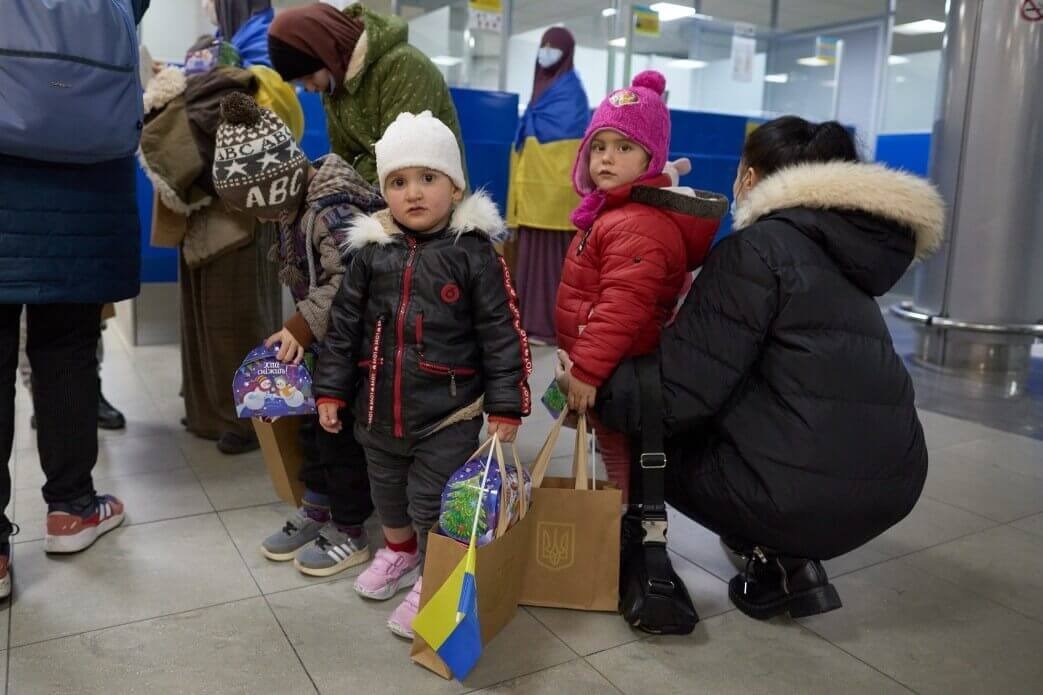
It is increasingly obvious to the British population, and the world at large, that the UK government is going out of its way to avoid its moral and international obligations towards refugees. On 27 April, the Nationality and Borders Act finally passed through parliament, despite evidence that it risks criminalising asylum seekers and denying their right to reunion with their families already in the country. Meanwhile, the Homes for Ukraine scheme – through which individuals, charities and business can sponsor refugees fleeing the Russia-Ukraine war – has grabbed headlines while falling behind on targets, as Ukrainians struggle to actually obtain the visas required, with many of the spare rooms offered remaining empty.
The immigration bill had been stuck in parliament since last July, and to force it through the government dropped one of the more controversial aspects: the so-called “push-back” policy that would allow the UK to stop asylum seekers in the Channel and send their dinghies back to France. However, the new legislation still penalises refugees entitled to asylum in the UK for having reached the country via “illegal” means. The government has repeatedly claimed that the aim is to crack down on people-smuggling gangs and to prevent deaths at sea. However, they were forced to admit in April that the bill contained no provision for safe and legal routes for asylum seekers into Britain. Therefore this argument appears to be disingenuous.
Thus far, 160 charities and campaign groups have branded the bill “shamefully cruel”. The UNHCR, meanwhile, has raised concerns that the law will undermine the Refugee Convention, along with Britain’s “longstanding global cooperation on refugee issues”.
Particular concerns have been raised over the new legislation allowing for the removal of refugees to other countries. Some critics have questioned the feasibility of the £120 million deal with Rwanda for offshore housing of asylum seekers, given the legal challenges such a scheme is likely to face. But the possibility of such a development has prompted outrage. The move has been seen as further evidence of Britain seeking to abandon its international obligations, and to shirk its ethical responsibility to provide safe refuge to people fleeing war and persecution.
Meanwhile, a whistleblower working for the Homes for Ukraine scheme has claimed that the policy was “designed to fail”, in order to limit the numbers of Ukrainians entering the country. Announced in the Commons as advancing Britain’s “long and proud history” of supporting the most vulnerable “in their darkest hours”, the scheme was criticised from the start for requiring asylum seekers toapply for a visa. This bureaucratic process – in which people are sometimes expected to travel hundreds of miles to passport or visa offices – drastically limits and slows a process intended to aid victims of war who may be in immediate danger.
The Refugee Council has expressed concern about the prospect of housing traumatised people with individuals who had not been through any robust checks or training, while it’s still unclear what will happen to refugees after the six-month stint with sponsors comes to an end. This latest whistleblower leak, claiming that the system was designed to “keep the numbers down”, seems to confirm suspicions that limitations aren’t a bug, but rather a feature.
Taken in the round, the least cynical of observers might conclude that the UK government’s priority is simply to keep refugee numbers low. Thus far, appeals to moral and international commitments have been ignored, as has the opinion of the British public, whose views in a recent YouGov poll showed the majority opposed the Rwanda deal, with 27 per cent “strongly opposed”. So much for Britain’s much-trumpeted “long and proud history” of providing refuge for the vulnerable – at least where the current government is concerned.
This piece is from the Witness section of New Humanist summer 2022. Subscribe here.

